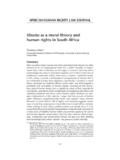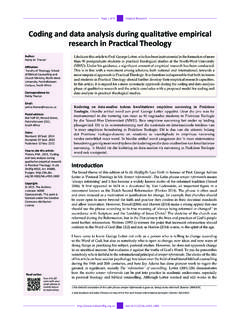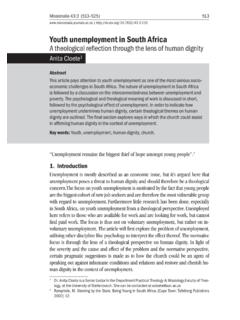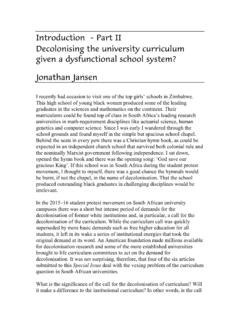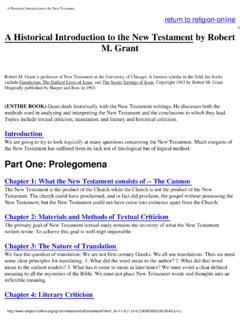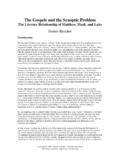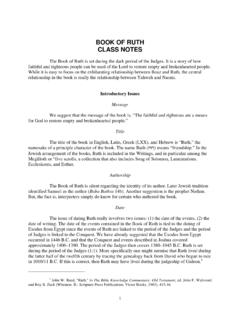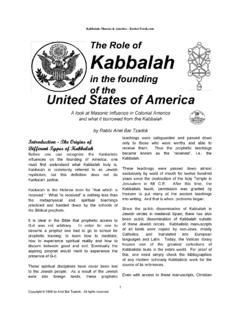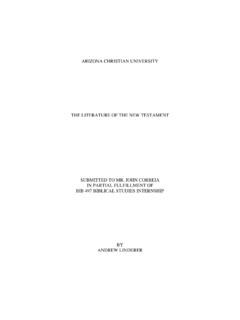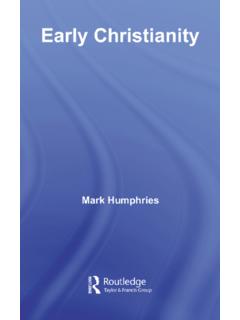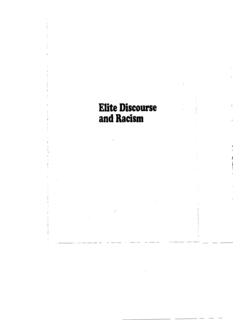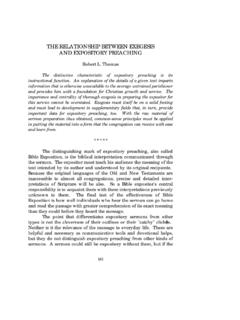Transcription of Shaka the Great - SciELO
1 Historia 54,1, Mei/May 2009, pp 159-179 159 Shaka the Great * Jeff Peires** Among several welcome signs that the gloom and doom which has for too long enveloped South African historiography is finally beginning to lift,1 one ominous portent continues to threaten. As Christopher Saunders recently put it, much of the new work is narrow and specialized and of limited general significance .2 History cannot flourish in the absence of debate, and the louder the debate, the more people are likely to join in.
2 The South African historiographical landscape, however, still resembles that encountered by the British popular historian, Philip Ziegler, when he embarked on his study of the medieval Black Death, rival historians, each established in his fortress of specialized knowledge, waiting to destroy the unwary trespasser .3 So long as we continue to huddle in our strongholds, we will never engage. There are too many foxes in the South African historiographical world, and not enough Today therefore, I put on my hedgehog suit and venture out to KwaZulu Natal, about which I truthfully know very little.
3 If I die in battle, I can always scurry back to my Eastern Cape fortress and resume life as a fox. Besides which, if others follow my example, my sacrifice will not have been in vain. The decline of Shaka The conventional image of Shaka as a Great African leader, a kind of black Napoleon, was adopted wholesale and unreflectively by the liberal historians of the Oxford History School, who sought to counter the racist assumptions of the colonial and apartheid eras by portraying African history as dynamic, constructive and independent of European influence.
4 Shaka was portrayed neither as a superhuman hero , nor as a satanic monster ,5 but as an innovative, albeit despotic state builder. John Omer-Cooper, whose experiences teaching History at the University of Ibadan aligned him with the historiographical mood of newly independent black Africa, described Shaka thus in 1966: Shaka constructed a new type of state .. The concentration of power in the army and its extreme dependence on the king, raised Shaka s authority far above that of the traditional chief The sub-chiefs had lost the power to act as effective checks on the central authority Shaka did not need to consult the traditional tribal council He ruled as an absolute despot, deciding cases while taking his morning bath, and ordering men to death with a nod of his head6 * C Burns, A Useable Past , in H E Stolten.
5 History Making and Present Day Politics (Nordiska Afrikainstitutet, Uppsala, 2007) ** Jeff Peires is of the University of Fort Hare-Alice 1 Burns, A Useable Past 2 C C Saunders, Four Decades of South African academic historical writing; a personal perspective , in Stolten, History Making, p 288 3 P Ziegler, The Black Death (Harmondsworth, Middlesex, 1970), p 9 4 The fox knows many things, but the hedgehog knows one big thing This fragment from the Greek poet Archilochus was popularised by Isaiah Berlin in his celebrated essay on Tolstoy s view of History, The Hedgehog and the Fox (1953) According to Berlin.
6 There exists a Great chasm between those, on one side, who relate everything to a single central vision and on the other side, those who pursue many ends, often unrelated and even contradictory 5 D Wylie, Myth of Iron (University of KwaZulu-Natal Press, Pietermaritzburg, 2006), p 518 6 J Omer-Cooper, The Zulu Aftermath (Longman, London, 1966), pp 33, 36 Peires 160It soon became clear that this picture of Shaka , however positive, was inadequate. Not only was the liberal view based on a small number of largely flawed printed sources, but its concerns were entirely political and military.
7 Further research rapidly demonstrated the social and economic significance of the regimental system, which naturally raised the question of how and why age-sets were transformed into regiments in northern (Zulu), but not southern (Xhosa) The writings of the French Marxist anthropologists were more or less influential in defining a materialist paradigm: Who is working with whom and for whom? Where does the product of the labourer go? Who controls the product? How does the economic system reproduce itself?
8 8 With so many new questions and so many different societies to look at, not to mention an instinctive aversion to the Great man style of history, Shaka was not so much downplayed as ignored. A collection of papers given at the Nguni Workshop in Grahamstown in 1979 was entitled Before and After Shaka , but, ironically enough, Shaka himself was nowhere As the search for deeper structures pushed the origins of the Zulu state further and further back in time, the significance of Shaka s personal role was inevitably diminished.
9 Shaka s historical reputation may have declined during the materialist hegemony of the early 1980s, but it was the Cobbing hypothesis that really put the boot Cobbing was understandably too busy making his case for the trans-continental crossfire of interrelated European plunder systems 11 to spend much time on Shaka , but his hypothesis necessarily relegated Shaka to the status of, at best, a convenient fall guy. Europeans, not Africans, drove the upheavals they called the mfecane , and made poor Shaka a scapegoat for their nefarious slave-trading Mendacious propaganda was insistently relayed back to the Colony that Natal had been totally depopulated by the Zulu and that Shaka was a bloody killer that the British could virtuously and profitably crusade against.
10 13 It was at this point that the Cobbing hypothesis fortuitously intersected with the burgeoning postmodern interest in problems of representation. The works of Nathaniel Isaacs and Henry Francis Fynn were weighed and, unsurprisingly, found wanting. Attention switched from the history of Shaka , to the history of the image of Shaka , and even as 7 Linguists have long described the languages of South Africa s coastal strip (isiZulu, isiXhosa) as Nguni, and historians, fearful of anachronism, initially described the protoZulu as northern Nguni , but ever since John Wright convincingly pointed out that the term Nguni meant different things to different people at different times, historians have been reluctant to employ the term and have resorted to circumlocutions like the Phongolo-Mzimkhulu region to describe the territory presently known as KwaZulu-Natal See.
